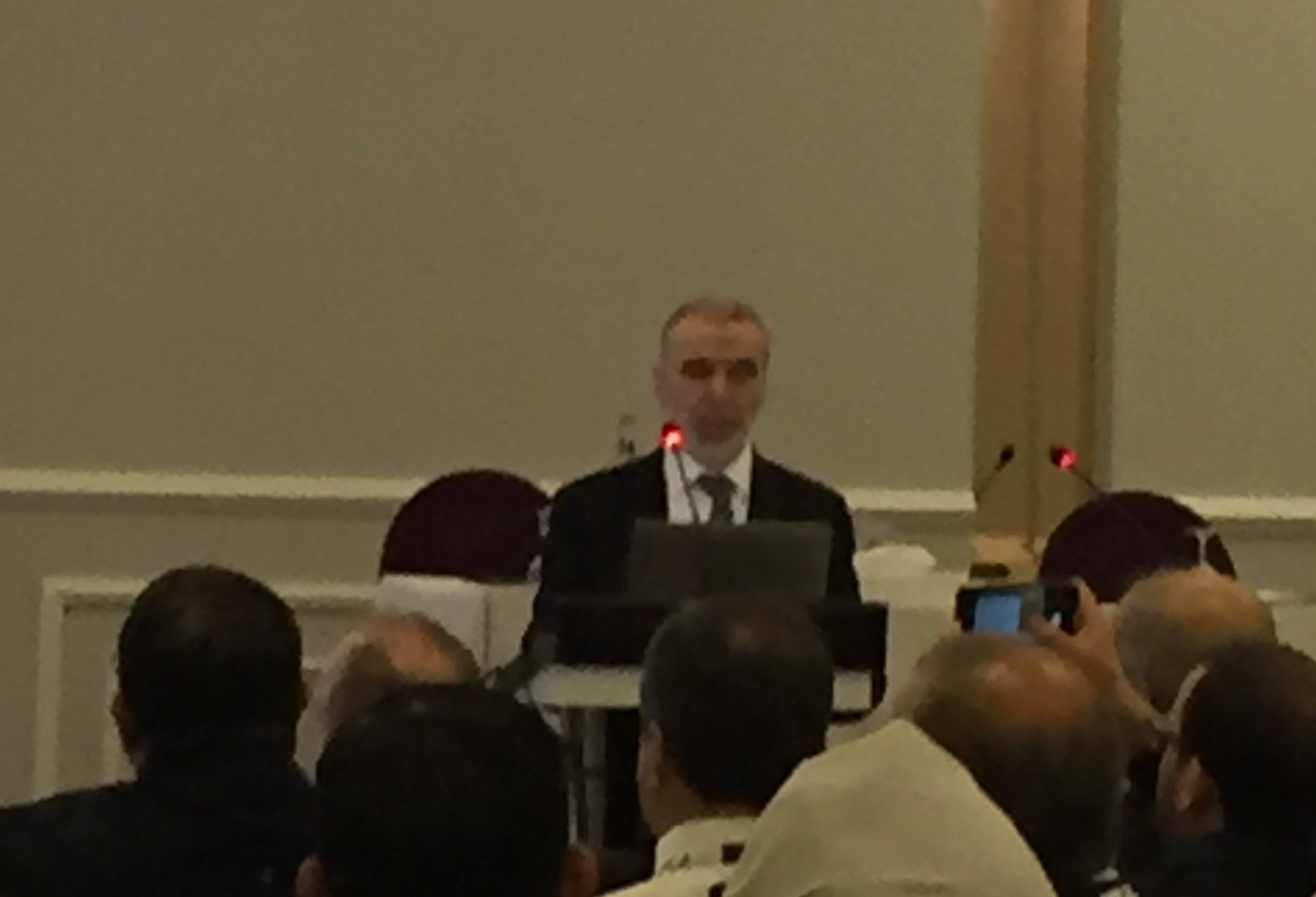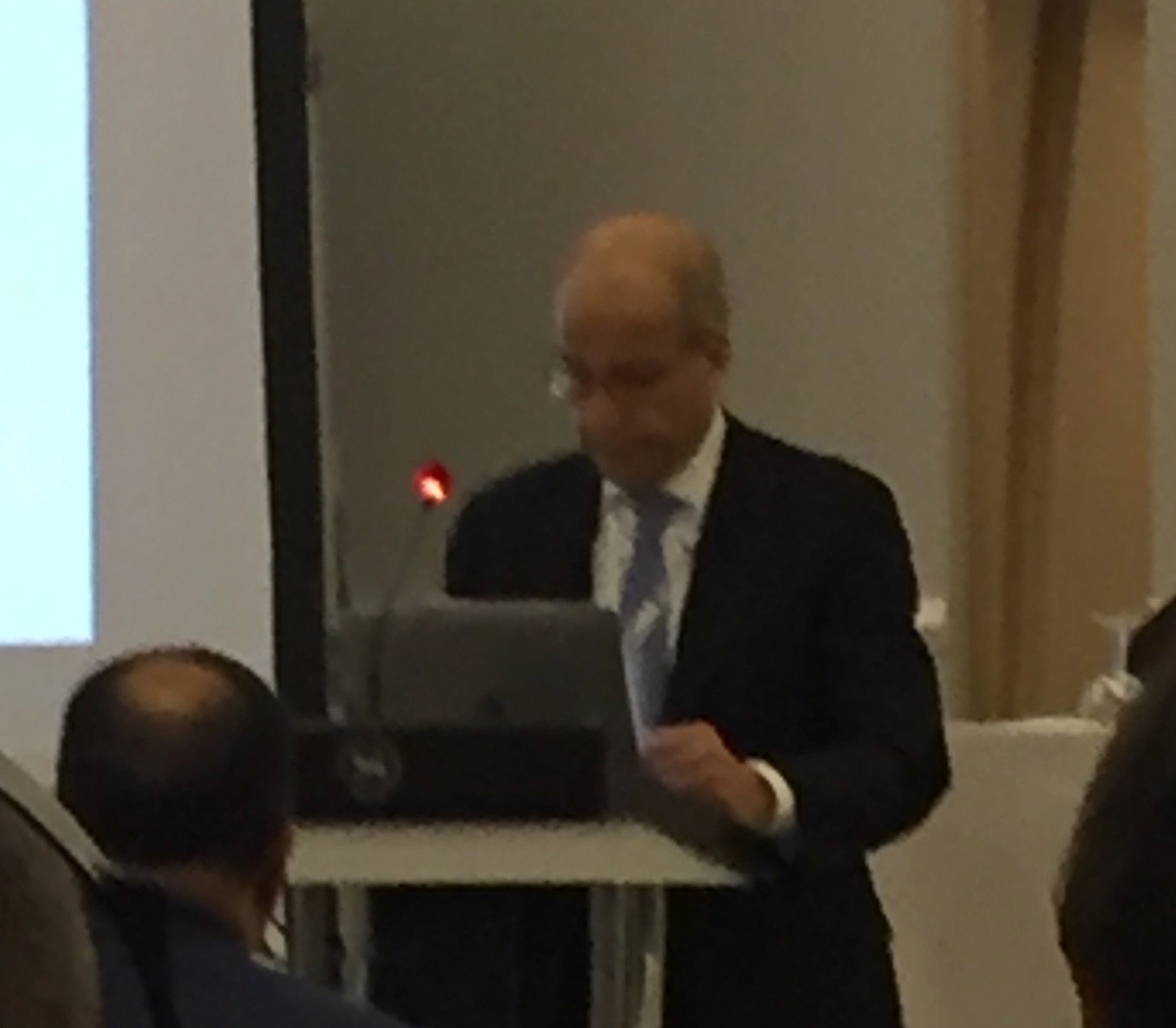By Michel Cousins.
 Tunis, 21 November 2019:
Tunis, 21 November 2019:
The NOC is spending LD 1.5 billion to increase oil output to 1.5 million barrels a day within the next year. It also plans to see oil production hit 2.1 million barrels a day (m b/d) and gas production rise to 3.4 billion cubic feet a day by 2024. According to Sanalla, oil production is currently 1.25 m b/d.
Sanallah was speaking on Wednesday in Tunis to a large visiting delegation from the Libyan British Buisiness Council (LBBC). The governor of the Central Bank of Libya (CBL), Saddek Elkaber also addressed the gathering as did Faisal Gergab, the chairman of the Libyan Post, Telecommunications and Information Technology Company (LPTIC). Also attending was the chairman in the Libyan Investment Authority (LIA), Ali Mahmoud Hassan.
According to Sanalla, 2020 is to be a “year of transformation” as NOC moves towards its target of 2.1 m b/d in 2024. Work will start on repairing damaged and destroyed oil fields, new wells will be drilled, others reopened or upgraded, pipelines repaired, and new production technology installed.
The LD 1.5 bn investment results from the Sarraj government’s decision last month to provide the funds for development,
Stressing that the NOC is neither involved in politics nor takes sides in the current crisis, Sanalla unveiled a new four-pillar charter for the corporation. It was committed to the country’s unity, independence, to integrity and a wider public stewardship. As part of the first and second pillars, it continues to operate throughout the country. As part of the third, it is committed to public transparency in all its operations and to opposing corruption – “reporting it when we see it”.
On the area of stewardship, the NOC plans to invest more in towns, villages and areas directly involved with the oil industry. An Oil-Hosting Community Fund enabling the NOC to invest in healthcare, eduction and other sectors in oil areas has been approved by the Tripoli-based Government of National Accord, Sanalla said. This would also include university and post-graduate scholarships for local students.
Sanalla also called for government action to end fuel subsidies. Their existence continued to ensure fuel smuggling abroad. Action would not be easy, Sanallah admitted. Earning fortunes, the smugglers were well connected. “They will not give up their gains without a fight”, he warned. But action had to be taken, he insisted.
Sanalla also called for greater diversification of the economy and for a greater focus on environmental issues.
He put cost of redeveloping and expanding oil production at $60 billion by the end of 2024. Libya needed to invest in this but the lion’s share of this, he said, would have to come from foreign investment. This, according to NOC officials, would be encouraged by more favourable exploration and production contracts.
Speaking about security in the oilfields, Sanalla said that the Petroleum Facilities Guards needed to be reformed and restructured. In particular, specialist training was required. New technology would also be needed to protect fields and facilities, notably drones.
In his speech, CBL governor Elkaber agreed that the existence of two exchange rates – the official one at around LD 1.40 to the US dollar and the surcharged one – needed to end. But the time was not right yet, he said.
 Despite the continuing conflict, British interest in the Libyan market appears to be growing. The LBBC delegation was one of its largest ever, with some 40 companies taking part. The Libyan interest in dealing with the UK appears just as strong. In addition to the presence of the heads of the NOC, CBL, LIA and LPTIC, the chairmen of almost all Libyan oil companies, from both east and west of the country, took part. Libyans like and trust British technology and services, Sanalla said.
Despite the continuing conflict, British interest in the Libyan market appears to be growing. The LBBC delegation was one of its largest ever, with some 40 companies taking part. The Libyan interest in dealing with the UK appears just as strong. In addition to the presence of the heads of the NOC, CBL, LIA and LPTIC, the chairmen of almost all Libyan oil companies, from both east and west of the country, took part. Libyans like and trust British technology and services, Sanalla said.
The current production figure of 1.25m b/d given by him is slightly down from the 1.28 m b/d reported by NOC officials in October. The 2.1m b/d target for 2024 is also down on the figure given by the same officials last month. They had put the target at 2.2m b/d.
After his presentation on Wednesday, Sanalla signed a new agreement with the LBBC under which the two would collaborate on strategic planning, accessing technology and accessing post-graduate studies at Aberdeen’s Robert Gordon University as well as other British universities.







